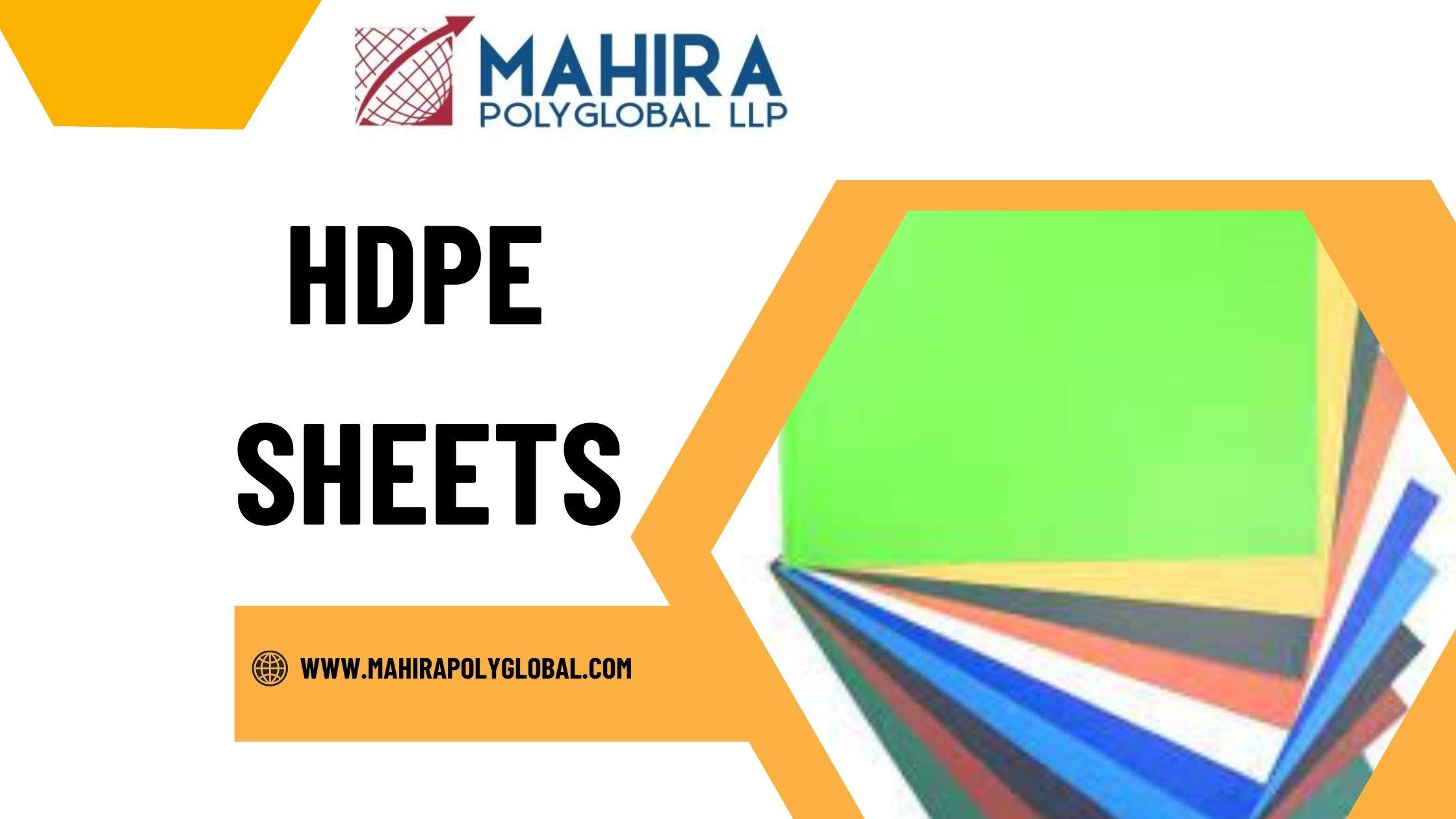A Comprehensive Comparison of HDPE Sheets and Other Plastic Materials

In the world of plastics, High-Density Polyethylene (HDPE) sheets have gained significant popularity due to their unique properties and versatile applications. However, they are not the only plastic material available for various uses. This article provides a comprehensive comparison of HDPE sheets with other common plastic materials, exploring their characteristics, benefits, and ideal applications.
Understanding HDPE Sheets
High Density Polyethylene Sheet are made from high-density polyethylene, a thermoplastic polymer characterized by its high strength-to-density ratio. HDPE sheets are known for their durability, moisture resistance, and excellent chemical resistance, making them suitable for various applications in industries such as packaging, construction, and agriculture.
Key Properties of HDPE Sheets
- Durability: HDPE sheets are resistant to impact and wear, making them long-lasting even in harsh environments.
- Chemical Resistance: They can withstand exposure to a wide range of chemicals, making them ideal for applications in laboratories and chemical storage.
- Moisture Resistance: HDPE does not absorb water, preventing issues related to mold and mildew.
- Lightweight: Compared to other materials, HDPE sheets are lightweight, facilitating easier handling and transport.
- Recyclability: HDPE sheets are recyclable, contributing to sustainable practices in manufacturing and waste management.
Comparison with Other Plastic Materials
1. Polypropylene (PP)
Properties:
- Polypropylene sheets are flexible, lightweight, and resistant to moisture and chemicals. They have a lower melting point than HDPE and are often used in applications that require bending or shaping.
Applications:
- Commonly used for packaging, automotive parts, and textiles.
Comparison:
- While PP is more flexible and offers better impact resistance, HDPE provides superior strength and rigidity. HDPE sheets are more suitable for structural applications, whereas PP is better for products that require flexibility.
2. Polyvinyl Chloride (PVC)
Properties:
- PVC sheets are strong, durable, and resistant to moisture. They are available in rigid and flexible forms and are often used in construction.
Applications:
- Commonly found in building materials, piping, and electrical insulation.
Comparison:
- While PVC is excellent for construction applications, it can be more brittle than HDPE. HDPE sheets offer better chemical resistance, making them preferable in applications involving harsh chemicals.
3. Low-Density Polyethylene (LDPE)
Properties:
- LDPE sheets are more flexible than HDPE but have a lower tensile strength. They are resistant to moisture but less durable than HDPE.
Applications:
- Widely used in packaging films, plastic bags, and containers.
Comparison:
- While LDPE is more suitable for applications requiring flexibility, High Density Plastic Sheets is better for structural integrity and load-bearing uses. HDPE sheets also offer superior chemical and UV resistance.
4. Acrylic (PMMA)
Properties:
- Acrylic sheets are known for their clarity and impact resistance. They can be easily fabricated and are often used for applications where transparency is desired.
Applications:
- Commonly used in signage, displays, and windows.
Comparison:
- Acrylic provides excellent clarity but lacks the chemical resistance of HDPE. For applications involving chemicals or heavy-duty use, HDPE sheets are the preferred choice.
5. Polystyrene (PS)
Properties:
- Polystyrene sheets are rigid and brittle, with good thermal insulation properties. They are easy to mold and fabricate.
Applications:
- Frequently used in packaging, disposable cutlery, and containers.
Comparison:
- While PS is suitable for packaging, it is not as durable as HDPE. HDPE sheets offer greater strength and versatility in demanding applications.
Ideal Applications for HDPE Sheets
Given their unique properties, Sheet of Hdpe are widely used in various applications, including:
- Packaging: HDPE is commonly used for containers, bottles, and bags due to its durability and chemical resistance.
- Construction: In construction, HDPE sheets are used for damp-proofing, geotechnical applications, and wall panels.
- Agriculture: HDPE sheets serve as liners for ponds and water containment solutions, helping to conserve water resources.
- Medical: They are often utilized for packaging medical supplies due to their non-toxic nature and chemical resistance.
- Marine: In marine applications, HDPE is used for dock floats and other watercraft components due to its resistance to saltwater.
Conclusion
High-Density Polyethylene (HDPE) sheets offer a compelling combination of strength, durability, and versatility, making them a preferred choice for various applications. When compared to other plastic materials such as polypropylene, PVC, LDPE, acrylic, and polystyrene, HDPE stands out for its superior chemical resistance, moisture resistance, and recyclability.
Understanding the unique properties of each material can help businesses and consumers make informed decisions regarding their packaging and application needs. For high-quality HDPE sheets, consider reaching out to suppliers like Mahira Polyglobal LLP, which provide a diverse range of plastic products suited to your requirements. By choosing HDPE sheets, you can ensure reliable performance and durability in your applications, all while supporting sustainable practices.
FAQs
1. What are HDPE sheets made from?
HDPE sheets are made from high-density polyethylene, a thermoplastic polymer produced through the polymerization of ethylene gas.
2. How do HDPE sheets compare to low-density polyethylene sheets?
HDPE sheets are denser and stronger than low-density polyethylene (LDPE) sheets. While LDPE is more flexible, HDPE offers superior rigidity, chemical resistance, and durability.
3. Can HDPE sheets be recycled?
Yes, HDPE sheets are recyclable and can be reused multiple times without losing their properties. This contributes to their appeal as a sustainable packaging option.
4. Where can I buy high-density polyethylene sheets?
You can purchase high-density polyethylene sheets from reputable suppliers like Mahira Polyglobal LLP, which offers a wide range of plastic products tailored to various applications.
5. What is the price range for HDPE sheets?
The price of high-density polyethylene sheets can vary based on thickness, size, and supplier. For specific pricing, it is advisable to contact suppliers directly.
- Art
- Causes
- Crafts
- Dance
- Drinks
- Film
- Fitness
- Food
- Jogos
- Gardening
- Health
- Início
- Literature
- Music
- Networking
- Outro
- Party
- Religion
- Shopping
- Sports
- Theater
- Wellness


